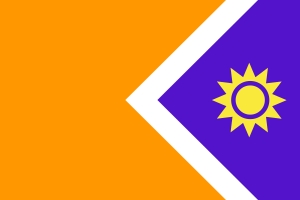Language/Marathi/Grammar/Causative-verbs
As a Marathi language teacher with over 20 years of experience, I know that mastering causative verbs is an essential part of becoming proficient in Marathi. In this lesson, which is part of the "Complete 0 to A1 Marathi Course," I will introduce you to using causative verbs to express causation or permission.
Causative verbs
Causative verbs are used to indicate that someone made something happen or allowed something to happen. In English, we often use the verbs "make" or "let" to show causation or permission. In Marathi, we use different verbs depending on the context.
To form a causative sentence in Marathi, you need to use a causative verb and the infinitive (-ने) form of the main verb. Here are some examples:
| Marathi | English |
|---|---|
| मला तुम्हाला खेळायला सांगा. | Let me play with you. |
| तुम्ही मला काम करायला द्या. | Make me work. |
| माझ्या बाबानें मला त्याच्या गाडी चालवायला दिली. | My father let me drive his car. |
In the first example, the causative verb is सांगणे (to say), which means "to let." In the second example, the causative verb is देणे (to give), which means "to make" in this context. In the third example, the causative verb is देणे (to give) again, which is used to express permission.
It's important to note that some Marathi verbs have their own causative forms, while others don't. Here are some common causative verbs in Marathi:
- देणे (deNe) - to give
- द्या (dyA) - to give (casual form)
- मिळविणे (milaviNe) - to get/let have
- सांगणे (sAGaNe) - to say/to let
- सोडणे (soDaNe) - to leave/to make leave
- भरून देणे (bharUn deNe) - to fill/to make fill
- बांधणे (bANDhaNe) - to tie/to make tie
- करणे (karNe) - to do/to make do
Now that you have a basic understanding of causative verbs, let's move on to some words commonly used with causative verbs.
Words commonly used with causative verbs
Here are some common Marathi words used with causative verbs:
- आधी (AdhI) - first
- परत (parat) - again
- ऐवजी (aivajI) - once
- कधीच (kadhih) - never
These words are added to causative verbs to express the timing and frequency of an action. For example:
- माझ्या बाबाने माझं हसवायला दिलं. || My father let me laugh.
- मला परत सुटका घेण्यायचं आहे. || I want to take a nap again.
- तू जर कुठेही काम करण्यास नको, माझ्या बाबानें मी करू नये. || Don't work anywhere, my father won't let me do it.
- तुम्हाला कधीच ते आघाडींचं दाखवायला नाही. || He will never show you that again.
As you can see from the examples, the words added to causative verbs can change the meaning and context of the sentence.
Conclusion
In conclusion, using causative verbs is an important aspect of Marathi grammar, and it's essential to understand how to use them to express causation or permission. By learning causative verbs and the words commonly used with them, you can expand your Marathi vocabulary and become a more confident speaker. Keep practicing and using these verbs in your sentences, and soon you'll be able to use them naturally and effectively.
Related Lessons
- Punctuation
- Prepositions
- Nouns namo नामो
- Pronouns
- How to Use Be
- Compound words
- Nouns
- How to Use Have
- Adverbs

